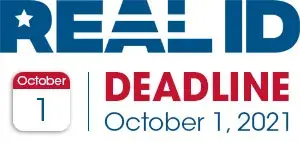 Frequently asked questions and answers regarding state compliance with the minimum standards of the REAL ID Act and implementing regulation.
Frequently asked questions and answers regarding state compliance with the minimum standards of the REAL ID Act and implementing regulation.
Q. Where can a state find information on the REAL ID Act and regulations?
A. Links to the REAL ID statute and regulations, along with supporting documents, may be found on the DHS website (www.dhs.gov/secure-drivers-license-documentation) You may also contact the Department of Homeland Security at REALID@HQ.DHS.Gov.
Q. What information does a state need to submit to DHS in order to obtain a DHS Determination of Compliance?
A. The REAL ID Regulation (6 C.F.R. Part 37, Subpart E) details the information a state should submit to DHS in order to obtain a DHS Determination of Compliance.
Q. Where should states seeking a DHS determination of compliance send its certification package?
A. DHS recommends that jurisdictions submit both a hard copy and an electronic copy.
Mail: 245 Murray Lane, SW; Mail Stop 0460; NAC 17-02-208-03; Washington, DC 20528
Email: REALID@HQ.DHS.Gov
Q. How does DHS review a state’s certification package?
A. DHS will review the information a state submits and may conduct interviews with state employees and conduct audits or site inspections as may be needed. In some cases DHS may make a Preliminary Determination of Noncompliance and identify any deficiencies in the state’s program for issuing REAL IDs. States will been given time to correct any deficiencies identified by DHS. Once DHS determines that the state meets the full requirements of the Act and implementing regulation, DHS will issue a Final Determination of Compliance to the state.
Q. Can jurisdictions meeting the standards of REAL ID continue to issue non-compliant REAL ID driver’s licenses and identification cards?
A. Yes. REAL ID allows jurisdictions to issue identification cards and driver’s licenses that are not in compliance with the requirements of the Act. Those licenses and identification cards, however, must clearly state on their face and in the machine readable zone that the card is not acceptable for official purposes.
Q. If my state issues an Enhanced Driver’s Licenses, is that sufficient for my state to be REAL ID compliant?
A. State Enhanced Driver’s Licenses (EDL) designated as acceptable border-crossing documents by DHS under the Western Hemisphere Travel Initiative (WHTI) are acceptable for official Federal purposes (i.e., boarding a commercial aircraft, accessing a Federal facility, or entering a nuclear power plant). However the existence of an EDL is not sufficient to consider the state to be in overall compliance for purpose of determining whether a Federal agency may accept a state’s regular driver’s license for official purposes. For example, a Federal agency could accept an EDL issued from a state but not be able to accept a standard driver’s license from that same state.
Q. Why is DHS recertifying states already determined to be compliant?
A. DHS makes determinations that a state is meeting the minimum requirements of the REAL ID Act based upon certifications submitted by the state to the Secretary of Homeland Security. The REAL ID regulation prescribes how these certifications are to be made. In particular, the REAL ID regulation requires that states recertify their compliance with the Act every three years, on a rolling basis, as determined by DHS.
Q. Why is DHS recertifying compliant states at this time?
A. DHS issued the first Determinations of Compliance for states in December 2012. At that time, key technologies for verifying applicant information were still under development. These technologies have since been deployed and DHS can recertify all compliant states based upon a common set of standards and available technologies.
Q. How will DHS implement the recertification of compliant states?
A. Twenty-three states received DHS Determinations of Compliance from 2012 through 2014. These states meet the criteria for recertification. DHS will recertify these twenty-three states on a rolling basis. Approximately five states will be recertified at a time. As DHS completes a recertification review for each state, an additional state will be selected for review. This process will be completed when all twenty-three qualified states have been issued Determinations of Compliance. Thereafter, DHS will initiate recertifications of REAL ID compliant states every three years.
Q. How will the public be impacted by the recertification process?
A. The recertification process does not change the compliant status of states under review. Recertification will not affect the ability of residents of compliant states to use their REAL ID driver’s licenses and IDs for official purposes. If DHS finds that a state is not currently meeting all of the minimum standards of the REAL ID Act and regulation, then DHS will work closely with the state to draft and fully implement corrective action plans to close these gaps.
